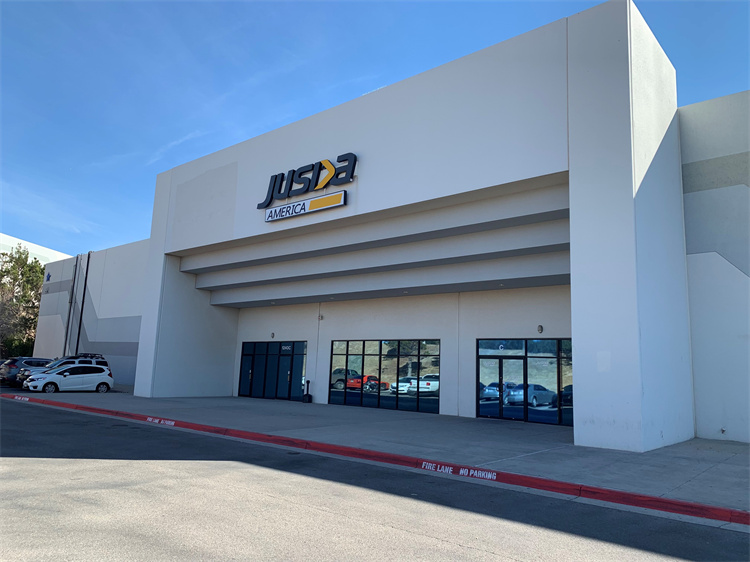Jusda Supply Chains and Global Consumer Demands: A Deep Dive

Understanding Jusda supply chains and consumer demands is paramount in navigating the complexities of global logistics. With Jusda's pivotal role in streamlining supply chain operations, businesses gain a competitive edge in meeting evolving market needs. This guide delves into the intricate web of global consumer demands, shedding light on how Jusda's innovative solutions in freight forwarding drive efficiency and adaptability. By exploring these dynamics, readers will grasp the significance of aligning supply chain strategies with ever-changing consumer expectations.
Understanding Jusda Supply Chains

In delving into the realm of Jusda supply chains, one must grasp the intricate tapestry that weaves together its operations. Jusda prides itself on being a pioneer in lean supply chain management, offering unique features tailored to the manufacturing industry. With a focus on optimization and end-to-end integration, Jusda stands as a beacon of excellence in the supply chain arena.
Overview of Jusda supply chains
Unraveling the historical threads of Jusda's journey unveils a narrative rich in experience and expertise. Established as a specialized enterprise for enterprise optimization, Jusda has honed its craft over nearly two decades. This journey culminates in a profound understanding of the nuances that govern modern supply chains.
Key operations and services
Lean Supply Chain Management: Offering tailored solutions for manufacturing entities.
End-to-End Integration: Ensuring seamless connectivity across the entire supply chain spectrum.
Role in freight forwarding
At the heart of Jusda's operations lies its pivotal role in freight forwarding, where logistics prowess meets technological innovation. By leveraging cutting-edge solutions, Jusda redefines efficiency and adaptability within global supply chains.
Logistics and transportation
Efficient Routing: Optimizing transportation routes for enhanced delivery timelines.
Real-Time Tracking: Providing visibility throughout the shipping process for heightened control.
Technology and innovation
AI Integration: Harnessing artificial intelligence to streamline logistical processes.
Blockchain Solutions: Ensuring transparency and security in freight transactions.
Meeting Consumer Demands
Analyzing consumer demands
Current trends
Direct Purchases: Consumers are increasingly opting for direct purchases from brands' websites, with a significant 63% of consumers having made purchases directly from a brand's website.
Cross-Generational Engagement: The survey reveals that consumers across different age groups and categories actively participate in shaping current consumer demands.
Future expectations
Personalized Experiences: Future consumer demands are anticipated to focus on personalized experiences tailored to individual preferences.
Sustainable Choices: An emerging trend indicates a shift towards sustainable products and practices, reflecting future expectations for environmentally conscious offerings.
Jusda's strategies
Adaptation and innovation
Agile Solutions: Jusda embraces agility by swiftly adapting to changing consumer demands, ensuring proactive responses to market shifts.
Innovative Technologies: By integrating cutting-edge technologies, Jusda remains at the forefront of innovation, aligning its strategies with evolving consumer preferences.
Global Context and Trends

Global supply chain dynamics
In the realm of global supply chain dynamics, organizations navigate a landscape rife with challenges and opportunities. Understanding the interplay between these elements is crucial for operational success and strategic growth.
Challenges and opportunities
Organizations face the challenge of balancing cost efficiency with sustainability initiatives. This delicate equilibrium requires a nuanced approach to procurement and distribution.
Embracing technological advancements presents an opportunity for streamlining operations and enhancing visibility across the supply chain network.
Regulatory compliance poses a significant challenge, necessitating meticulous attention to detail in navigating international trade laws and standards.
Regulatory environment
Adhering to stringent regulatory frameworks is imperative for organizations operating on a global scale. Compliance with diverse regulations demands a comprehensive understanding of legal requirements in each market.
Proactive engagement with regulatory bodies can transform challenges into opportunities by fostering transparency and accountability within the supply chain ecosystem.
Future trends in global supply chains
The future landscape of global supply chains is poised to witness a paradigm shift towards sustainability and ethics-driven practices. As consumer preferences evolve, organizations must proactively adapt to emerging trends to remain competitive in a dynamic marketplace.
Sustainability and ethics
Embracing sustainable sourcing practices will be paramount in meeting consumer expectations for environmentally conscious products.
Ethical considerations, such as fair labor practices and social responsibility, will play an increasingly pivotal role in shaping brand reputation and consumer loyalty.
Technological advancements
The integration of cutting-edge technologies, including artificial intelligence and blockchain solutions, will revolutionize supply chain management processes.
Leveraging data analytics tools will enable organizations to make informed decisions, optimize resource allocation, and enhance operational efficiency.
The necessity of adaptability in supply chain management programs is paramount.
Anticipating and resolving issues before they arise fosters a culture of preparedness for imminent changes.
Supply chain adaptability stands as a strategic imperative, ensuring sustained success for businesses.
Resilience in supply chains enables proactive adjustments to global events and customer demands, fostering long-term viability and growth opportunities.
